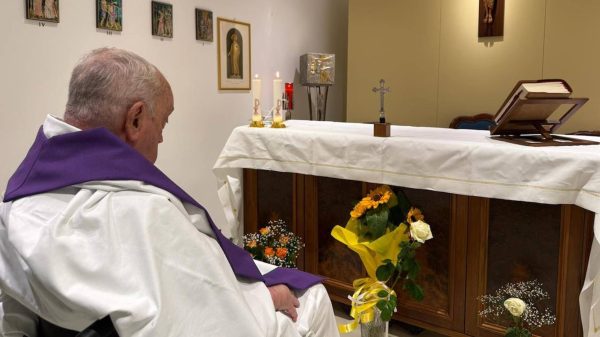The recent reassertion of claims over Arunachal as South Tibet by China spurs a string of thoughts questioning its legitimacy along with the incessant hypocrisy involved here. While India’s sovereignty over Arunachal Pradesh is internationally recognised and accepted, China continues to lay claims on the state weaving its justifications around the district of Tawang which hosts the Tawang Ganden Namgyal Lhatse (Tawang Monastery), which is the second largest monastery of Tibetan Buddhism in the world. China claims that the monastery is evidence that the district once belonged to Tibet.
But why such selective application of logic as per convenience. The issue that draws stark analogy here is the well-known landscape of Kailash-Mansarovar. The Kailash Mansarovar, also known as Mount Kailash, is regarded as the abode of Lord Shiva, as per Hindu traditions since more than 6000 years of our history and before. The Hindu name attached with this place itself is thousands of years older than the origin of Buddhism, let alone Tibet & its kingdom.
In fact, India’s cultural claim is so stout & justified that it holds a very strong global approval too. To the extent that UNESCO considered the Kailash Mansarovar site in a tentative list of possible World Heritage Sites, following a request from India’s Culture Ministry in 2019. It was a known fact that the same had to be eventually shelved due to excessive protests by China & the clout China wields within the UN being a permanent member of UNSC.
Another important fact that is generally ignored is that Maharaja Hari Singh’s Instrument of Accession referred to him as “Shriman Inder Mahinder Rajrajeswar Maharajadhiraj Shri Hari Singhji, Jammu & Kashmir Naresh Tatha Tibet adi Deshadhipati”. That is, he asserted that he is not just the ruler of Jammu & Kashmir but also of the areas of Eastern Ladakh, including Aksai Chin as well as the territory he controlled inside Tibet.
Accordingly, J&K’s territory included jurisdiction over Minsar (Menser) estate, which consisted of a cluster of villages located 296 kilometres deep inside current Chinese territory, at the foot of the holy Mount Kailash on the bank of Manasarovar Lake.
Menser remained a part of India even after Tibet under the 5th Dalai Lama brutally snatched the Eastern half of Ladakh, covering the area of Rudok, Guge, Kailash, Burang and up to the Nepal border junction, during the 1679–1684 Ladakh-Tibet war.
The 1684 Treaty of Temisgang concluded at the end of that war entitled the ruler of Ladakh to govern the Menser villages for two key purposes:
(a) Retaining a transit place for Indian traders and pilgrims to Mount Kailash; and,
(b) Meeting the expenses connected with religious offerings to the sacred Mount Kailash.
Successive Maharajas of Kashmir continued to abide by these treaty obligations and collected taxes from Menser villages from 1684 until the early 1960s. Menser served as key outpost for Indian traders and pilgrims for over 300 years.
The details of India’s legal jurisdiction over Menser are given in the Notes, Memoranda and Letters Exchanged and Agreements signed between The Governments of India and China (White Paper IV for the period between September 1959 – March 1960), published by the Ministry of External Affairs, Government of India. A few pre-1950 archival maps even show Menser as well as Kailash to be a part of India.
Interestingly, Tibetologist Claude Arpi in his articles ‘Little Bhutan in Tibet’ and ‘One Country Which Has Not Been Nice’, said, ‘Nehru, wanting to be nice and have his Panchsheel Agreement signed, had unilaterally renounced all Indian “colonial” rights over smaller principalities including the Indian estate of Menser & Kailash in 1953.’ Arpi says Nehru, though, knew about the Maharaja of Kashmir’s suzerainty over Menser, but felt uneasy about this Indian possession near Mount Kailash – hence, he surrendered it as a ‘gesture of goodwill towards Communist China’.
Share this article:























